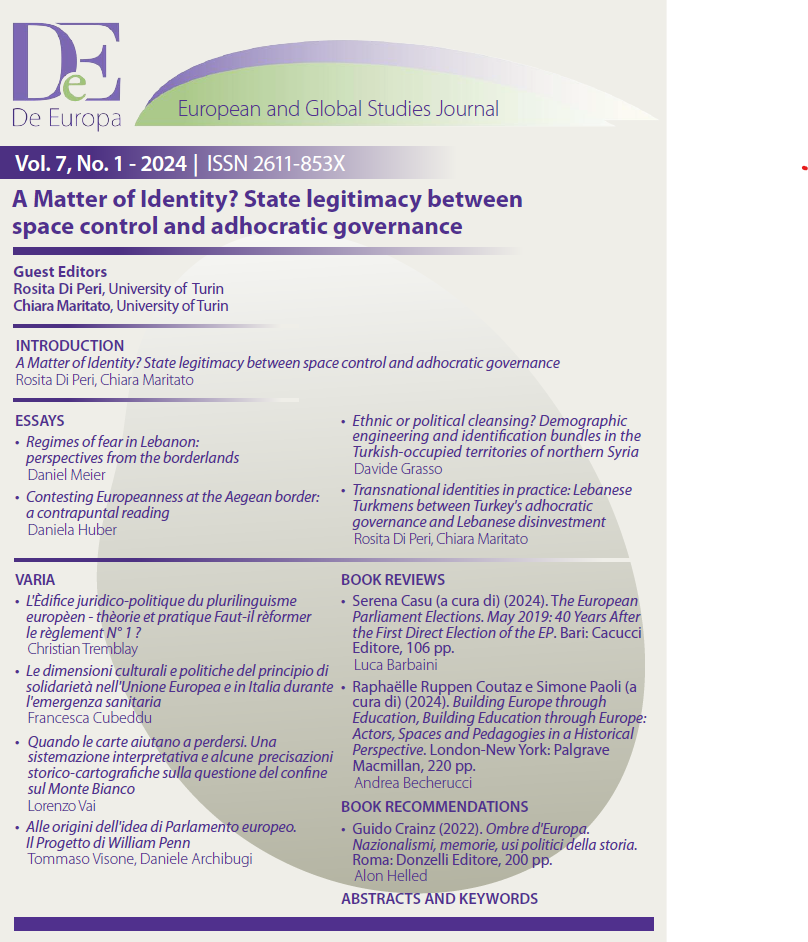Contesting Europeanness at the Aegean border: a contrapuntal reading
DOI:
https://doi.org/10.13135/2611-853X/9757Abstract
to be undergoing a rupture. The von der Leyen European Commission has proclaimed a geopolitical EU, which
seems difficult to reconcile with its previous identity. This raises the question: How is the process of identity
formation currently unfolding in the European Union? To address this question, the article focuses on migration
policy, which has become a central political discourse and practice in the constitution, production and main-
tenance of European identity. Using the broader Aegean borderland and the 2020 migration crisis as case
studies, it contrapuntally examines: 1) how policymakers, civil society and refugees have provided contesting
identifications with Europe; 2) how such identifications are bundled and stabilised in – and experienced
through – policies; and 3) which alternatives might destabilise them. The study finds that the
EU as deterrence
emerges as a dominant articulation by EU policymakers, although it is audibly contested by European civil
society organisationsí articulation of the EU as liberal and rules-based. The notions of EU as deterrence and the
EU as liberal and rules-based
are intertwined with the EU as humanitarian compassion by policymakers and civil
society. Nonetheless, EU as deterrence dominates the experience of refugees. Humanitarian compassion is
somewhat experienced by refugees, but the EU as liberal and rules-based is scarcely evident. Refugees also
articulate an alternative, namely the EU as part of shared humanity, which acknowledges their agency, poten-
tial and contributions.
Keywords: European Union, Liberal Order, Identity, Crisis, Migration




 The journal has been approved for inclusion in DOAJ. The DOAJ listing of the journal is available at
The journal has been approved for inclusion in DOAJ. The DOAJ listing of the journal is available at 

